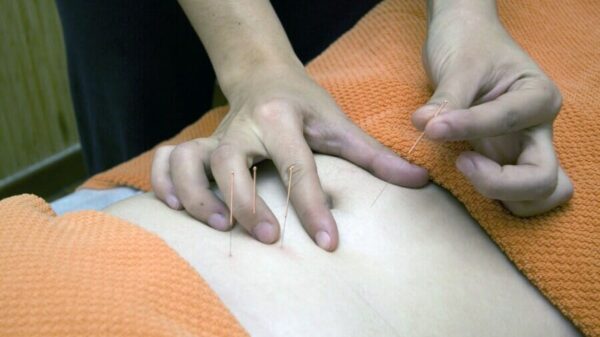“The mouth and the gut are both essential components of the digestive system, intricately linked through our diet and the bacteria that reside in both locations,” explains Michael Wei, DDS, a cosmetic dentist based in New York City. The mouth serves as the initial phase of digestion, where food is chewed before transitioning down the esophagus. The microorganisms inhabiting your mouth contribute to its health and safeguard you against illnesses2. Each swallow allows “oral bacteria to be transferred to the stomach,” eventually reaching the rest of the gut, states Erin Fraundorf, DMD, MSD, an orthodontist and the founder of BOCA Orthodontic + Whitening Studio.
In addition to serving as a barrier for the gut, oral health plays a crucial role in enhancing overall well-being. Notably, maintaining good oral health is associated with increased longevity. “The state of your oral health, particularly your oral microbiome, establishes the foundation for overall health in your body,” remarks Dr. Fraundorf. “The better your oral health, the better your gut health, and consequently, the better your overall wellness.”
So, what can you do to nurture your oral-gut axis regularly? Below, we consulted two oral health specialists and a gastroenterologist for insights. Key takeaway: While brushing your teeth is vital, it’s equally important to pay attention to your dietary choices.
How poor oral health can impact the gut
Research indicates that inadequate oral health can significantly affect the gut. “Studies have demonstrated that the bacteria in the mouth can influence the gut microbiome3 and vice versa,” shares Dr. Wei. He emphasizes that poor dental hygiene, including gum disease, can cause a proliferation of harmful bacteria in the mouth that may disrupt the gut microbiome when ingested.
While having bacteria in your mouth or gut isn’t inherently negative, an excess of bacteria—especially specific harmful types—can lead to systemic imbalances. “An imbalance in gut bacteria, referred to as dysbiosis, has been associated with numerous health issues such as inflammatory bowel disease (IBD)4,” Dr. Wei points out. Notably, various studies have observed connections between IBD and oral problems like gingivitis and periodontal disease5, suggesting that these conditions may influence each other through a distinct inflammatory interplay between the gums and the gut.
Will Bulsiewicz, MD, a gastroenterologist and bestselling author of The Fiber Fueled Cookbook, mentions that in recent years, studies have revealed an even more compelling connection between oral health and gut health concerning colon cancer. “50 percent of colon cancers contain a bacterium called Fusobacterium6,” Dr. Bulsiewicz explains, noting that this bacterium is not originally found in the intestines but is prevalent in the mouth. However, additional research is necessary to deepen the understanding of this relationship.
On a brighter note, the connection between oral and gut health does have its positives. “While certain bacteria found in your mouth can be detrimental, many beneficial bacteria also exist that contribute protective roles. If your oral microbiome is healthy, diverse, and flourishing, it will positively impact the rest of your body,” Dr. Fraundorf adds. The essential approach lies in nurturing both oral and gut health, as outlined in the steps below.
4 Strategies for Maintaining Excellent Oral Hygiene to Promote Optimal Oral and Gut Health
1. Brush and Floss Consistently
Good oral health relies on effective oral hygiene practices, which include brushing and flossing a minimum of twice a day. For those seeking a more thorough routine, Dr. Fraundorf offers the following checklist:
- Brush at least two times per day for no less than two minutes each session: Aim to brush three to four times daily for extra credit, but avoid doing so right after meals when tooth enamel is most vulnerable due to acidity from food.
- Utilize an electric toothbrush: Dr. Fraundorf suggests the Oral-B iO 9 or 10 series with a soft bristle head, which should be replaced every three months—or sooner if you are unwell.
- Choose fluoride or nano-hydroxyapatite (n-HA) toothpaste: For individuals with sensitive teeth, Dr. Fraundorf recommends toothpaste containing potassium nitrate.
- Floss both manually and with a water flosser: Dr. Fraundorf recommends using a water flosser, such as those made by Oral-B, at least once every day.
- Employ a tongue scraper: Daily use of a tongue scraper can effectively remove excess bacteria and residue from the tongue.
- Opt for a mild mouth rinse: Select a mouth rinse that is alcohol-free to prevent dry mouth, and use it at least once a day.
2. Incorporate Oral-Microbiome-Friendly Foods
“While regular brushing and flossing are crucial for maintaining solid oral hygiene, your diet plays a vital role and serves as your best defense,” notes Dr. Fraundorf. “Building a diverse and healthy oral microbiome begins with the conscious choices you make about what you eat.” She suggests including the following foods in your diet to support dental health:
- Whole foods, vegetables, and those abundant in probiotics and fermentation
- Locally sourced, seasonal produce
- Minimally processed items that lack preservatives or artificial ingredients
- Limit simple sugars and carbohydrates
3. Explore Mouth Taping
While not suitable for everyone, mouth taping at night—often referred to as placing tape over the mouth to prevent breathing through it during sleep—can offer some benefits for both oral and gut health, as noted by various practitioners. Dr. Bulsiewicz mentions that mouth taping can cultivate a more favorable environment for both the oral and gut microbiomes even during rest.
“For those who tend to breathe through their mouths, taping it shut may enhance both oral and digestive health, as mouth breathing tends to foster a dry atmosphere that encourages harmful bacteria and acid, damaging the protective barriers of teeth and speeding up tooth decay and gum disease,” Dr. Fraundorf concurs. However, it is advised to consult with a medical professional before trying this technique to confirm its safety, especially for those with sleep apnea or similar breathing issues.
4. Keep Up with Dental Appointments
Finally, regular dental visits are essential. “Maintaining a thorough oral hygiene routine—one that combines brushing, flossing, and regular check-ups—is crucial,” emphasizes Dr. Wei. Such appointments help identify any potential oral health issues, which can also impact the gut microbiome.
Image Source: Drazen Zigic / Shutterstock

































